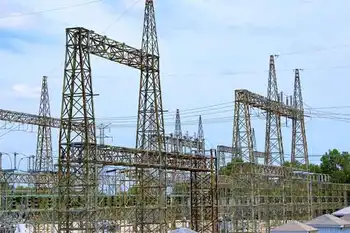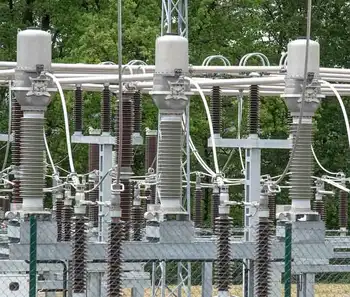UtiliCorp Jumps Into Fibre Optics With B.C.'s IPWorld
TRAIL, B.C. -- - Except for Cominco Ltd.'s stygian lead-zinc smelter, Trail has not attracted much foreign investment in technology since the wartime Manhattan Project acquired elements for the atomic bomb here.
However, UtiliCorp United Inc., the second-largest electricity wholesaler in the United States, agreed to invest in IPWorld Communications Corp., a fibre optic communications startup run by a pair of local ski racers.
Missouri-based UtiliCorp is on a charge to roll out high-speed broadband communications for its customers wherever the utility has rights-of-way. Because Canadian regulation stops the company from getting directly into the telecommunications business, it is funding a joint venture with IPWorldCom with a mandate for all of Canada and the Pacific Northwest of the U.S.
Either directly or with local partners, UtiliCorp already operates fibre optic networks in the U.S. Midwest and in Australia. This week, it announced plans to build high-speed networks in the business districts of Auckland and Wellington in New Zealand.
"What we've really focused on are the broadband services to the home," said Jeffrey Ingram, UtiliCorp's vice-president, business development. "When you look at providing those services, they are very much in line with what we do. Whether you are moving electrons or whether you are moving packets, you are doing much the same thing."
UtiliCorp has been in Canada since 1987 when it acquired West Kootenay Power Co. from Cominco. The second-largest power utility in B.C., West Kootenay has 350,000 customers, most of them in communities under-served with high-speed domestic broadband connections for the Internet at a time, Mr. Ingram said, when demand for such service is "exploding." UtiliCorp also is beginning to acquire electrical operations in Alberta and Ontario.
As it happens, IPWorldCom has its offices in West Kootenay's Trail headquarters because Brian Fry, 39, the president, wanted to live in nearby Rossland, his hometown, when he returned to Canada in 1997 from a technology sales job in Silicon Valley. He ran an Internet service provider in the B.C. Interior before selling it and starting IPWorldCom.
Rossland is legendary for spawning competitive skiers. Mr. Fry was intent on competing for an Olympic gold medal until he suffered a career-ending accident in 1982. He says that his brother Darrel, 31, was equally talented. The younger brother instead became a stockbroker until he joined IPWorldCom early this year to help the company with its finances. IPWorldCom is completing a reverse takeover of Consolidated Earth Stewards Inc., a shell listed on the Canadian Venture Exchange, giving it the ability to go the public market for financing.
IPWorldCom was formed last year by Mr. Fry, in partnership with a Kelowna telecommunications executive named Tim Dufour. While they were working on a consulting project on telecommunication infrastructure, "the light went on" -- as Mr. Fry puts it -- that utility rights-of-way could also be used to deliver fibre optic cable.
They took the idea to West Kootenay and discovered that the UtiliCorp subsidiary was thinking along the same lines. "We liked the business plan," Mr. Ingram said of IPWorldCom. "They're very aggressive and they have very similar visions to our's. It seemed like a very natural fit."
Under the agreement announced this week, UtiliCorp, which has teamed with other start-ups in this field to augment its own skills, will invest $5-million for a 46.7% interest in a joint venture with IPWorldCom. The utility also gets warrants to take a 19.9% interest directly in IPWorldCom.
The agreement is to be finalized by Aug. 31.
Source: National Post
Related News

As Maine debates 145-mile electric line, energy giant with billions at stake is absent
BANGOR - As Maine regulators are deciding whether to approve the construction of a $1 billion transmission line across much of western Maine, the Canadian hydroelectric utility poised to make billions of dollars from the project has been absent from the process.
This has left both opponents and supporters of the line arguing about how much available energy the utility has to send through a completed line, and whether that energy will help fulfill the mission of the project: fighting climate change.
And while the utility has avoided making its case before regulators, which requires submitting to cross-examination and discovery, it has…




